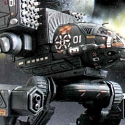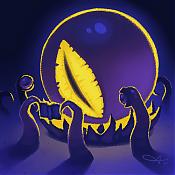|
 This LP is a dystopia-free zone. Do not call anyone a Nazi and do not suggest war crimes or similar poo poo is happening. Beyond Earth tries to be a very positive look at the future, and I appreciate it for that. Civilization: Beyond Earth is a deeply flawed game. One of those weird spin-offs every long-running video game series makes now and then, not dignified with a series number and going outside the box on long-time conceits and gameplay concepts of the series. Beyond Earth goes well outside the traditional stomping grounds of Civilization, and for my money is the most innovative Civilization game in decades. However, not all of these innovations work, and I've described Beyond Earth to Civilization fans as a game that is less than the sum of its parts. All the same, it's nevertheless my favorite game in the series. I play most games to relax, to sit back and build a pretty empire, and Beyond Earth does this well. For the warmongers out there, and those who live to play Civilization on super hard difficulties, there's not much here for you. Beyond Earth's AI has even less idea how to play with the game's unique features than in main line Civilization games, and much of the game is easy to break over your knee. I'm not that kind of player and I'm not going to show that off in detail (I find Prince in Civ5 only beatable some of the time, thank you), but I am going to note some obvious ways to do it.  I'll be playing this with Rising Tide, Beyond Earth's first and only expansion. Rising Tide was for me an excellent expansion, adding lots of new stuff I wanted, and it was an earnest attempt to address some of the base game's shortcomings. As an improvement to the game, though, Rising Tide was something of a mixed bag. There's a lot more to do and there's some interesting ideas at play, but if anything Rising Tide made the game even easier to break. Like Beyond Earth, Rising Tide dearly needed more and better play-testing, and probably more time in the oven. What did it add? More character, and certainly more to do. This LP is intended to be mostly informative, with the narrative taking a back seat, at least until the game is more thoroughly established. It's also not likely going to be difficult. Instead, I just want to show off this weird step-child in the Civilization family, warts and all. Also, I'm going to say this now: this is not Alpha Centauri 2, and I believe it was never meant to be. This game has plenty of faults, but I don't think "It's not as good as Alpha Centauri!" is a valid one. The statement is certainly true for many people, but please ease off the direct comparisons. I'm aiming to update about once a week.  Al Falah (Supremacy/Harmony) Light This Candle Setting the Stage (story, no gameplay) First Steps Stellar System Overview (story, no gameplay) Divided Destiny Affinities, tech web chat, culture system The Spark Diplomatic Brief: Chungsu (story, no gameplay) You Take the High Road In From the Cold Breaking the Ice Recursion Synthesis Feedback Loop Hello, World The Crossroads (ending vote!) At the Gates of Eden Return to Sender Homeworld The Pilgrimage The Toast of Valhalla Winding Down Full Circle (end of the game!) Post Script INTEGR (Purity) Leaving the Cradle Friends of Old The Cauldron Taking Wing Realignment Surface Tension Consolidation Compromises At the Precipice (ending vote!) Operation Lockpick Gatecrasher The Storm Flood Tide (end of the game) Cythereal fucked around with this message at 23:57 on Oct 21, 2019 |
|
|
|

|
| # ? May 3, 2024 21:21 |
|
Reserved.
|
|
|
|
Light This Candle So without further ado, let's get started. Ignore Firaxis bugging me about Civ6 at the bottom here.  Beyond Earth's difficulty settings are, in ascending order of difficulty: Sputnik, Mercury, Vostok, Gemini, Soyuz, and Apollo. I'm going with Sputnik because it serves my purposes.  "The Salvation" was aptly named. More than any other region of the globe, the area known as the Middle East suffered terribly during the Mistake. Even pooling their resources, the nations between Africa, Europe, and Asia could not build the grandiose colony ships of the other world powers. Nor did they intend to wait for the largesse of the rest of the world. Al Falah wasn't the first out of the solar system, but they were close behind. Launched on a wing and a prayer, the men and women of Al Falah would never see Earth again, nor would they live to see their new world. Neither would their children, or their children's children. The descendants of Al Falah who would land on their chosen world would be born in space, and it was in their hands, in some unknowable future, that the Arab world placed their hopes and dreams. For this LP, we'll be playing as Al Falah, a new faction introduced in Rising Tide. While Firaxis made a great deal of noise about how Al Falah left home in a generation ship rather than a sleeper ship, this actually has zero impact on gameplay and is purely for fluff. I'll get into more detail about the game's backstory and characters in a later post, but for now what matters is that the colony ships of Beyond Earth were launched after a period of global chaos and upheaval. Post peak oil, the petrostates of the Middle East suffered deeply, and were among the first to wholeheartedly embrace the colonization of other worlds, launching even before technology like cryo-sleep had been perfected. Al Falah's special faction bonus is improving the yields from city developments. Civilization fans know how most games in the series let cities undertake projects to convert a portion of the city's industrial output directly into science or money. Beyond Earth expands on this concept, and Al Falah specializes in it. What that means, we'll see once we get into the game proper. Civilization fans are probably also wondering where the rest of the faction's bonuses are. Well, Beyond Earth is built on the idea of building your own faction as you please, and we're not done with starting the game yet.  There were too many people desperate to leave Earth. Simply too many. Colonists were chosen simply by lottery once the command crew had been selected. Families were split apart, husbands and wives, parents and children. Such was the price of this last desperate prayer for survival. The colonists expected this. What they did not expect was for colonist training to emphasize was art. It was vital, Al Falah's leaders explained, that they never forget Earth or their culture, and that who they are should always be celebrated. All of our cities we ever build will get the bonus output we select here, but a better way to think about it is that our first city will get this bonus from the word go. To this end, I find Artists absolutely priceless. I'll dive into the culture system and why accumulating culture from the word go is so useful later, but this will give us a significant leg up in the early game unless we get seriously unlucky. To go over the other options, however... Engineers is in my opinion the second best option. Every point of production helps at the beginning of the game. Scientists is a trap, I feel. Science is obviously vital in Beyond Earth, like it is in every Civilization game, but all the same +2 per city isn't really that much and I've never found my rate of science particularly restrictive in the early game (caveat: I am playing on the easiest difficulty). Refugees is very map dependent. I generally don't like it, but as it happens for this game, this actually would have been a reasonable pick.  Aristocrats is pointless, in my opinion. Energy is Beyond Earth's version of gold in the other Civilization games, and it's hilariously easy to make absolutely stupid amounts of it. If I'd linked my Firaxis account up, I'd actually have a couple of new options for having played Sid Meier's Starships, one of those games no one talks about... for good reason, really. Pioneers would let us make colonists (settlers) and explorers (scouts) at double speed. Useful at the beginning of the game, certainly, and my point for taking Artists is for early game expansion. Mercenaries would give all our cities extra HP and all combat units extra strength in friendly territory. If this is useful to you, something's probably gone very wrong. Has its niche, I suppose.  Before the Mistake, much of the Middle East's wealth had been based on natural resources. The inclusion of a sophisticated geological survey sensor in the Al Falah ship was only natural. Take your pick of various fancy gadgets for your ship! Tectonic Scanner is far and away my favorite choice, as it will reveal the three strategic resources on the map that normally need technological research to see - and we'll even be able to exploit one immediately should we find it. Making use of petroleum and geothermal will still take some research, as will the other strategic resources, but this will let us see and plan accordingly. And if we do luck into some titanium early in the game, that's huge. Continental Surveyor would let us see the outline of every coastline on the map, framing all the islands and continents. Better in base Beyond Earth than in Rising Tide, I feel. The oceans are not empty space now, and there's plenty to do. Retrograde Thrusters is roughly analogous to giving a starting settler in another Civilization game a series of free moves at the beginning of the game. This one is pure luck whether it's useful or not, and I have a hard time justifying the opportunity cost of forgoing the Tectonic Scanner. Fusion Reactor is completely pointless in my opinion. Lifeform Sensor gets more useful on higher difficulties when the aliens are more restive - it's analogous to seeing every barbarian camp on the map at the game's start. But more can pop up, and in this game it's not always in your interests to kill the aliens. Spaceships adds two new options: Supply Module puts two supply pods near our starting location. These are equivalent to the goody huts or ruins in other Civ games, but less powerful - all the really good stuff from those kinds of sites are in a different system in this game. Could be amazing if we got incredibly lucky, but I think y'all have seen how I feel about luck-based bonuses by now. Electromagnetic Sensor reveals some (all? never actually used this) artifacts on the map. Artifacts are the good half of the goody huts, but are more complicated to use. This one could actually be very good depending on your luck but, well, luck-based bonus.  Al Falah's directors had no idea what the world they were going to might hold, but one thing seemed obvious: the colony would need infrastructure, whatever form that might take, and so packed the ship's cargo hold full of heavy duty construction equipment that would, they hoped, be sufficient to get the colony's infrastructure up and running immediately. Civilization fans, imagine starting with a free worker immediately on turn one. Yeah, this is good. Everyone else, you'll see why this is so good once the game proper starts. Hydroponics is good, but it's an immediate short-term gain. Machinery offers so much more long-term value. Laboratory is an interesting option. Pioneering would let us make colonists from the word go (yes, you have to research settlers in this game) and more importantly the first production-increasing structure. I've done Laboratory + Engineers before, and it does work. Raw Materials is a trap. Clinics are useful but not amazing, and I'll build one soon anyhow. Weapon Arsenal is only useful, imo, if things have gone seriously wrong or you're planning to RP being a bloodthirsty bunch to the aliens immediately. And the Spaceships options: Cryotome starts us with a free culture virtue immediately. We're taking Artists, so we'll get our first virtue very quickly and get the other important early game virtues quickly enough. It's useful, I guess, if you're not going Artists. Xeno Management gives us a gimmicky anti-alien unit. I don't like exterminating the aliens.  Wait, biomes? Frigid, arid, fungal?  Loading screen concept art with a bit of fluff about Al Falah. Both the kaiju and the troopers here are units you can build in this game. Yeah, that's not a naturally occurring alien. That's what happens when humanity decides that the local alien monsters just aren't big and strong enough and resolve to make their own.  The Golden Shah, flagship of the Al Falah fleet, was a product of compromises. Among the most powerful engines ever used for a Seeding craft, but less than ideal deep space sensors. That their target world had been identified by probes as viable was known. But as the colony lander plunged through an alien sky like a meteor, a knot formed in the stomach of Arshia Kishk. The youthful woman had only been voted Governor of Al Falah when the Golden Shah began its final approach to their new world, and she like most Al Falah had dreamed of a golden sun and green plains. What Al Falah descended towards was a cold, cloud-wrapped world in the dim light of a red dwarf star. Habitable, if only just. Barely warm enough for liquid water to exist on the surface for most of the year. And by a malfunctioning guidance system or a faulty sensor, the colonists were locked on terminal approach to the polar regions of an already frigid planet. There, she thought. A city on a hill, with a river to the north. Even from this height, sensors identified a huge mat of algae in the bay to the south, with less identifiable flora and outcroppings visible in the surrounding region. So... this could have gone better, but it's not as awful a starting location as it seems. Civilization fans are probably recoiling in horror at all that water, tundra, and snow, but in Beyond Earth the only worthless tiles are mountains. Much of this area will take some research to make productive, but we will make this icy world blossom in time.  From the shelter of the colony lander, the people of Al Falah took their first, hesitant steps into their new world. Ard, they called their city, in honor of Al-Ard: Earth. A place they knew only from recordings and legend. This new world would not be easy to tame, but centuries ago the people of Al Falah had risked everything to give their descendants a chance at survival. Not a guarantee, but a fighting chance. Arshia Kishk spoke for all of her people when they unfastened their safety harnesses when she said that a fighting chance was all they had ever needed. And now, I'm taking suggestions for names for this planet and the star we're orbiting! Al Falah is based on the Middle East, and is primarily Arabic in flavor, but there are undoubtedly all sorts of people and subcultures in Al Falah, so don't feel restricted to just Arabic names or allusions to Islam or what have you.
|
|
|
|
This entire thing was quite less miraculous than hoped. They didn't know this at first, of course! The official name in the database was of course known as O'Toole-45, yet when the highly dreamy and artistic inhabitants of the ship saw the red wonder another name quickly began spreading amongst the inhabitants of the ship: Halamna Al'ahmar, Our Red Dream. Of course, once the colonists finally saw the frozen orb that was supposed to be their new home the star quickly got another name: Al'ahmar Makhadie, The Red Deceiver. Long were both named used depending on the current mood but eventually an official consensus was reached and it was named Al'ahmar, The Red One. To many it was honestly a wonder the planet was even inhabitable. Many names circulated amongst the crestfallen colonists - the Frozen Monstrosity, the Broken Dream, the Icy Punishment - and as such it was believed it needed an official name to inspire hope rather than just despair. It was officially named the Icy Miracle, Almejazat Aljalidia. While the populace could quite easilly see through such a simple just the small smidgen of hope managed to help inspire them somewhat. As the old nicknames began to intermingle with the official name a compromise was eventually reached with Al-Jalidia, simply meaning Icy.
|
|
|
|
Looking forward to reading this as Beyond Earth has been on my Steam wishlist for years but I've never felt strongly enough about it to pull the trigger.
|
|
|
|
Bookmarking this, keep it up. I've heard so many mixed things about Beyond Earth, but who could hate a space-themed 4X?
|
|
|
|
Never played this game because SMAC is one of With that said, what other suggestion could I possibly make than Planet orbiting Alpha Centauri  (if some smart person wants to translate that into Arabic go for it) (if some smart person wants to translate that into Arabic go for it)
|
|
|
|
My own impression of this was that vanilla Beyond Earth felt kind of like a really elaborate reskin of Civ V with a few features removed, while Rising Tide actually added in enough to make it feel like a distinct game with its own identity. To that end I would say that anyone interested in trying Beyond Earth should absolutely get Rising Tide as well if they want to experience something distinct from Civ V. Look forward to reading through the LP!
|
|
|
|
Beyond Earth is one of those games I always wanted to like far more than I was ever able to like, partly because of unfair comparisons to Alpha Centauri, I think. I'm not unhappy to have paid for it, but it just... never really gets play time for me.
|
|
|
|
Starname: Red Eye Planetname: Shard Feel free to translate if it fits the narrative better.
|
|
|
|
Luhood posted:This entire thing was quite less miraculous than hoped. They didn't know this at first, of course! The official name in the database was of course known as O'Toole-45, yet when the highly dreamy and artistic inhabitants of the ship saw the red wonder another name quickly began spreading amongst the inhabitants of the ship: Halamna Al'ahmar, Our Red Dream. Of course, once the colonists finally saw the frozen orb that was supposed to be their new home the star quickly got another name: Al'ahmar Makhadie, The Red Deceiver. Long were both named used depending on the current mood but eventually an official consensus was reached and it was named Al'ahmar, The Red One. I love the reasoning for these, so they both get my vote
|
|
|
|
 Who are we, and how did we get here? Before starting the game in earnest, I thought I'd explain the backstory of Beyond Earth. Why is humanity abandoning Earth en masse? Why are so many nations risking everything on the long-odds bet of interstellar colonization? The answer, unfortunately, is somewhat vague and comes down to  . Firaxis wanted to leave the story of Beyond Earth mostly up to player imagination and let players write the story in their heads - not the last time this approach to [not] storytelling is going to come up in this game. But there are plenty of hints scattered throughout the in-game encyclopedia, and in one pre-launch livestream Firaxis did explain how things started. So, the following is my best guess for why Al Falah and several other nations have fled Earth. . Firaxis wanted to leave the story of Beyond Earth mostly up to player imagination and let players write the story in their heads - not the last time this approach to [not] storytelling is going to come up in this game. But there are plenty of hints scattered throughout the in-game encyclopedia, and in one pre-launch livestream Firaxis did explain how things started. So, the following is my best guess for why Al Falah and several other nations have fled Earth.At some point in the mid-21st century, a nuclear detonation occurred along the border of Pakistan and India. Pakistan and India both immediately claimed they were blameless, and that the other nation was responsible. Even though remarkably few people died in the blast, this incident sent Pakistan and India hurtling towards war. Attempts at mediation by the United States and China proved fruitless, and India and Pakistan went to war. Shortly after war was declared, another nuclear weapon of unclear provenance exploded. A full nuclear exchange between Pakistan and India ensued, and the war quickly drew in Iran, China, and Russia among other powers. So began the Mistake.  What's clear from the in-game encyclopedia is that the Mistake was not simply this singular war but a general term applied for a period of decades - possibly as much as a century - of global upheaval, disaster, and turmoil. Many of these disasters were from man-made climate change, such as massive flooding of the United States' east and Gulf coasts, and of coastal cities in Europe. Others were natural in origin. Krakatoa erupted again, and a terrible tsunami devastated Japan, leveling Tokyo. Famine spread as climate change destroyed harvests in North America and Europe, and the internet is specifically cited as becoming a thing of the past during the Mistake. Many parts of the world were largely passed by during the Mistake, notably South America, sub-Saharan Africa, and Australia. For these regions, the Mistake was largely a time of growth and prosperity. By the time the dust settled, these regions had become world leaders under new international organizations: the Commonwealth of the Pacific, the Organization of South American States, and the Peoples' African Union among others. How long the Mistake went on for, we don't know, but at some point the global situation largely stabilized. Individual nations had become mostly superceded by supra-national organizations like the aforementioned three, even in the previous centers of world power. The Pan-Asian Cooperative revitalized east Asia, centered on an economic alliance between China and South Korea that quickly grew to encompass Japan - now an impoverished backwater - and much of southeast Asia down to Indonesia. Europe split into three powerful alliance blocs: the North Sea Alliance of the United Kingdom, Scandinavia, and what was left of the Low Countries; Franco-Iberia that encompassed France, Spain, Portugal, Italy, and much of north Africa; and INTEGR (the Initiative für Nachhaltige Technologien, Effizienz, Gerechtigkeit und Rechtschaffenheit), based in Germany but encompassing much of central and southeastern Europe down through Greece. Russia re-emerged as the Slavic Federation, and in North America the United States largely faded from view as the American Reclamation Corporation, the world's largest megacorp and one of the largest economies in the world by itself, exploded into global dominance. This global Renaissance saw a new age of space exploration as these new global powers sought resources off-world. Permanent colonies on the Moon were established, followed by manned expeditions to Mars and the asteroid belt. It was this last expedition, manned by the Slavic Federation, that made a single discovery that changed everything: proof we were not alone in the cosmos.  The Provenance Discovery, as it came to be called, was an alien starship adrift in the asteroid belt. Though empty of crew and long inactive, the alien ship triggered a new generation of rapid technological development. Practical nuclear fusion, cryogenic sleep systems, and telescopes that worked over interstellar distances at faster than light velocities were only the most dramatic technologies reverse-engineered from the Provenance. At the same time, scientists in the Pan-Asian Cooperative, OSAS, and INTEGR were coming to a dire conclusion about the current state of the Earth: humanity was nearing critical exhaustion of Earth's natural resources and ecosystem. The petrostates of the Persian Gulf had collapsed into near-total anarchy during the Mistake as their oil reserves were exhausted, and famine from climate changed caused crop failures had devastated North America and China. The Inflection Point theory posited that in less than a century, Earth would no longer be capable of space flight or many other modern industries. Though the Inflection Point was deeply controversial - an overly pessimistic vision of doom according to its detractors - many of the world's leaders were convinced. From the India Protectorate came a proposal: the Provenance Discovery, right at the same time as the discovery of the Inflection Point, was a divine signal. It was time to leave Earth and find humanity's salvation under alien stars. Take advantage of humanity's last gasp at space flight and go for the dream of humanity's survival on other worlds. The Seeding, as India's leaders called the notion, would demand immense sacrifice from everyone left on Earth, and billions would be left behind. But this might be humanity's only chance for salvation. The Organization of South American States, Al Falah in the Middle East, and the Slavic Federation joined the Indian Protectorate in the Seeding immediately.  Other world powers joined not long afterwards: the American Reclamation Corporation acting independently of the United States, Franco-Iberia, the Pan-Asian Cooperative, the African Union, and the Commonwealth of the Pacific. The OSAS launched first, but Al Falah came hot on their heels. Only after the first wave of Seeding ships left for worlds unknown did a handful of latecomers, who had postponed joining the Seeding for various reasons of their own, launch one second and last wave of colony ships. These were the colony expeditions of the North Sea Alliance, INTEGR, and a mysterious international organization known as Chungsu (they're totally X-COM). All of them left full of hope to find humanity's destiny under alien skies. But many will inevitably find their visions of humanity's destiny incompatible with that of their peers, and it is that struggle that Beyond Earth covers. Along with one fundamental question: what does it mean to be human? Not that you'd get almost any of what I just wrote if you never watched any pre-launch livestreams by the developers or spent a few hours reading the in-game encyclopedia.
|
|
|
|
Cythereal posted:But many will inevitably find their visions of humanity's destiny incompatible with that of their peers, and it is that struggle that Beyond Earth covers. Along with one fundamental question: what does it mean to be human? What do you mean this isn't Alpha Centauri? This is totally Alpha Centauri.
|
|
|
|
Radio Free Kobold posted:What do you mean this isn't Alpha Centauri? This is totally Alpha Centauri. Alpha Centauri has well-written characters leading factions with detailed ideologies and well defined visions for manking. Beyond Earth does not. I'll get into it in detail when the affinity system comes up, but Beyond Earth's approach to ideology and your faction's vision for the future is mostly left up to the player to imagine - and deliberately so according to Firaxis. Like with the Mistake, Firaxis in this game tries to paint the broad strokes while leaving the details to the player's imagination. This was the major criticism of Beyond Earth's writing from SMAC fans: the game simply lacks character. Rising Tide does a lot to fix that particular shortcoming, but oddly the faction we'll be getting the least personality from in this LP is the very faction we're playing. Rising Tide's overhaul of the diplomacy system is mechanically iffy, but does give every AI faction a lot more personality and some factions have unique dialogue in the diplomacy screens. I almost did this LP as INTEGR for that reason, they get probably the most unique diplomacy dialogue of any faction in the game, but decided to go with Al Falah mostly on the basis of showcasing non-white people as the protagonists. Another factor being that INTEGR is the German faction (though in the fluff they also include Austria, Hungary, Switzerland, Romania, the Balkans, and Greece), and let's just say that modern German history has a somewhat troubled relationship with some of the ideas this game will be exploring.
|
|
|
|
If you’re still taking ideas for naming the star and planet, might I suggest Skullfuckertopia as the star and Coldasballs for the planet? Also, if my suggestions are chosen, I would like the mods to give me a sixer as celebration.
|
|
|
|
I thought part of the Rising Tide lore was that the second wave of ships was launched after the Inflection Point should have occurred, though this may just be me misreading things. At any rate it's a pretty cool game that never held my interest for very long and imo never really found its legs before civ 6 overshadowed it.
|
|
|
|
Name the star Stellarisn't and the planet No SMAC Talk.
|
|
|
|
|
Grizzwold posted:I thought part of the Rising Tide lore was that the second wave of ships was launched after the Inflection Point should have occurred, though this may just be me misreading things. You didn't misread things, that's what promotional materials for Rising Tide said. Except if you look at the civlopedia entries no such thing is ever mentioned. Just that INTEGR and the North Sea Alliance launched later than everyone else for various political reasons. Al Falah is a particularly weird case: their own civlopedia entry implies they were the first to launch, and that's why their ship was so much less advanced than everyone else's: technologies like cryo-sleep weren't working yet, so Al Falah said gently caress it we'll do this with the tech we've got rather than wait for tech that may or may not ever work properly. Except the base game establishes that Brasilia was the first to launch, and diplomacy dialogue in Rising Tide confirms that Brasilia was the first to launch their starship. Now, Brasilia did have cryo-sleep systems. Al Falah, the faction whose backstory emphasizes that they launched in haste with more primitive technology, did not. And the game never addresses this discrepancy. Did the rest of the world just gently caress over the Middle East during the Seeding program? Plausible! Did Brasilia launch with unproven experimental technology they weren't completely sure would work? Plausible! Did the developers just not care? Plausible!
|
|
|
|
Ahhh, I tried this game. Have never ever seen Rising Tide up for sale at all and haven't gotten it. Want to play it, just not really interested in playing full price for an expansion.
|
|
|
|
It's interesting because both vanilla BE and Rising Tide are noted Bad Games but for different reasons. Whereas vanilla is boring and stale and does basically nothing interesting with its new subsystems, Rising Tide swings in completely the opposite way by being a totally batshit and unbalanced mess that can be broken over the knee in ten minutes by any decent player. As you might expect, this makes RT a significantly more interesting and fun experience, as I'm sure Cythereal will show as this LP develops.
|
|
|
|
BE is one of the great disappointments of my gaming life because it could have been so good. There's the shell of a great game there, but there's just so many irritations and lovely decisions it completely fails at being fun Incidentally in case anyone missed it, Age of Wonders: Planetfall just came out and has an extremely similar vibe to this with the important difference that it's actually good
|
|
|
|
I always felt the writing in BE thought it was smarter than it actually was. Also it really smacked of end of history-ism since apparently even after all the upheavals of the Mistake, capitalism is the only political-economic system that exists and nobody even considers alternatives.
|
|
|
|
I remember playing BE. I don't remember anything else about it than people hyping the tech web and me realizing BE was incredibly bland.
|
|
|
|
|
Boksi posted:capitalism is the only political-economic system that exists and nobody even considers alternatives. As a matter of fact, this is not the case. The seventh culture virtue I'll be picking up in this LP is Central Planning, which explicitly uses a Soviet-style command economy as the inspiration for your colony's new economic system. Super Jay Mann posted:As you might expect, this makes RT a significantly more interesting and fun experience, as I'm sure Cythereal will show as this LP develops. I'm not going to go out of my way to break the game over my knee, or else I'd have landed us on a fungal planet. What, a tile with a simple farm isn't supposed to be producing 5 food, 5 production, 3 science, and 1 energy? The first real update won't get into it, as I have more important things to do in the first few turns, but I absolutely mean it that mountains are the only worthless tiles in Beyond Earth. We will be putting every single tile in a 3-tile radius around Ard to work by the end of the game.
|
|
|
|
I'm glad at least one other person has some appreciation for this game  . Rising Tide really did a lot of work improving on the base game. The one that immediately springs to mind since trying to play Civ 5 and 6 recently is that the leader call-outs/praise are like twitter notifications in BE, instead of full screen game interruptions like in 5 and 6 . Rising Tide really did a lot of work improving on the base game. The one that immediately springs to mind since trying to play Civ 5 and 6 recently is that the leader call-outs/praise are like twitter notifications in BE, instead of full screen game interruptions like in 5 and 6
|
|
|
|
Finally, we learn what happens when we do send a poet.Luhood posted:This entire thing was quite less miraculous than hoped. They didn't know this at first, of course! The official name in the database was of course known as O'Toole-45, yet when the highly dreamy and artistic inhabitants of the ship saw the red wonder another name quickly began spreading amongst the inhabitants of the ship: Halamna Al'ahmar, Our Red Dream. Of course, once the colonists finally saw the frozen orb that was supposed to be their new home the star quickly got another name: Al'ahmar Makhadie, The Red Deceiver. Long were both named used depending on the current mood but eventually an official consensus was reached and it was named Al'ahmar, The Red One. These are both real good.
|
|
|
|
Thing is, BE actually has some pretty interesting writing and decently cool high-scifi concepts: The problem is that almost all of these are hidden way back in the civiliopedia, forcing the player to actually hunt for them and never working as organic world-building that you're gradually exposed to. This is made worse by the fact that the quotes that you get when researching technologies etc are all kinda "meh", both in terms of being interesting writing in and of themselves, but also at giving personality to the world and the characters in it. It *really* doesn't help that they are very light on actual story telling, instead leaving up to the player to create context and meaning. Not to harp on the SMAC comparisons, but that was where its writing really shone: It had a clear story it wanted to tell, and you got a real sense of this dystopian future society developing subtly with every new technology and every new facility quote, and every quote was believable in-universe and gave you small additional snippets of lore regarding the different factions of Planet. And hell, they had some really subtle story telling if you read between the lines, such as the Lord's Believers disappearing almost entirely from the quotes around the middle of the game, before re-emerging as an underground resistance movement, and then committing mass suicide via entering a teleportation gate with no exit gate. I think my real point is that the problem with BE's world building isn't so much the writing itself, as much as the way it's presented (or rather not presented) to the player. But yeah, no 4X game is ever going to compare well against SMAC in the story department 
|
|
|
|
Fine, another mini-update: the civlopedia entries for Al Falah, Arshia Kishk, and our first tech of the game that we started with, Habitation.Al Falah posted:After the Great Mistake, the majority of the population of the Middle East was forced into exile, fleeing their devastated homeland for neighboring regions and eventually becoming part of the burgeoning African, Indian, and Slavic factions. But not everyone left – whether by choice or necessity, a portion of the Middle Eastern populous remained behind to make what life they could in the remains of the Fertile Crescent. Initially these survivors took refuge in the megacities of the wealthy Arab states – Dubai, Jeddah, and Amman in particular became teeming metropolises, bursting with massive populations struggling to find their feet. The masters of these new city-states at first sought aid from the international community, but as the global powers shrank into self-imposed isolation in the face of the ongoing crisis, they were left increasingly – and in the end, totally – alone. Arshia Kishk posted:“All things that live create and destroy. From the creation, wonders. From the destruction, relics. Everywhere we see treasures in abundance, waiting for a hand to pluck them.” Habitation posted:"We once believed that our destiny was controlled by the Gods. As we learned more about nature, we changed our minds. Now that we control our destiny, let us hope they never change back."
|
|
|
|
Covski posted:Thing is, BE actually has some pretty interesting writing and decently cool high-scifi concepts: The problem is that almost all of these are hidden way back in the civiliopedia, forcing the player to actually hunt for them and never working as organic world-building that you're gradually exposed to. This kind of thing also extends to the background stuff in beyond earth too. I mean, I read all the interviews and such of the faction leaders and they all come off as so bland. But even in the snippets of what you get in SMAC from buildings and techs you can see more of the leaders than you'll find in game. Lal really is dedicated to human rights except for a blind spot in his personal relations. Zhakharov as well has this great big problem when it comes to Planet and how it challenges his ideals, even straight-up admitting at the endgame that it's a god. Miriam has a couple of fundamentalist quotes, but also a lot more that show an unexpected streak of sanity when it comes to all the horrible dystopian crap that happens. On the other hand, Santiago ends up being a complete failure by her own ideology and Morgan is, bar none, the worst person in the game, managing to edge out Yang by how awful he is. They tried to make the leaders ciphers for any of the ideological options you can follow in Beyond earth and as a result they just come off as being usually quite samey, at most a completely bland archetype.
|
|
|
|
I played a game of Beyond Earth and passed on it largely because I couldn't be having with the Tech Web. I'm interested in seeing where it went and how it goes.
|
|
|
|
NewMars posted:Miriam has a couple of fundamentalist quotes, but also a lot more that show an unexpected streak of sanity when it comes to all the horrible dystopian crap that happens. Miriam provides a bit of a straight woman to contrast later developments against. At first you dismiss her as a loony fundamentalist, then in the later techs you start to find yourself starting to agree with her and it helps display how far things have shifted from the familiar.
|
|
|
|
We must dissent!Omnicrom posted:I played a game of Beyond Earth and passed on it largely because I couldn't be having with the Tech Web. I'm interested in seeing where it went and how it goes. While not a good game it does have several good things about it however, which will probably become obvious as things move along.
|
|
|
|
NewMars posted:Lal really is dedicated to human rights except for a blind spot in his personal relations. Who are we to stand in the way of true love?
|
|
|
|
Poil posted:We must dissent! This thread got me to reinstall BE/RT and the Affinity as Yield mod makes it so much better.
|
|
|
|
Okay, fine, have a proper update early. First Steps  The extreme misgivings the Al Falah felt for their new home fortunately proved to be somewhat misplaced in the first few days after Ard's landing. Life on Al-Jalidia, as the Al Falah had come to call the world, was carbon-based and used right-handed DNA much like Earth life. Humans could breathe Al-Jalidia's atmosphere, and eat native flora and fauna. The biochemical similarities weren't perfect, any colonist contemplating surviving purely on local foodstuffs would require nutritional supplements for certain trace elements mostly absent from the local ecology while suffering from an overabundance of other elements. Despite the punishing temperatures of Al-Jalidia, farming appeared to be possible. So despite how the frigid biome looks, it's mostly cosmetic. A grassland tile is the same on a lush, arid, fungal, primordial, or frigid world even if it looks different. We're at the arctic latitudes here, which occur in the same place as they would on any other biome. Directly southeast of Ard, pioneer teams discovered a species of edible root tuber growing in the inhospitable tundra. Though likely inferior to the potato plants Al Falah had brought to Al-Jalidia as a food source, they were clearly capable of thriving in a far harsher climate. Arshia Kishk marked the area for immediate cultivation of the local tubers. Tubers are the tile our worker started on. They add +1 food to a tile, and can be improved to add another +2 food. They'd be unremarkable if they didn't tend to pop up mainly in deserts and tundra, tiles that have no food by default. Unmanned ultralight drones and research expeditions from Ard quickly put together a basic understanding of the resources available near the landing site. In the bay to the southwest and in the waters further to the west were large expanses of algae, not unlike Earth's red algae but drifting freely on the waves via air bladders. Preliminary studies pronounced the algae safe to eat and a valuable local food source, while Ard's chemists suggested that the algae could be the basis of a local biofuel. Algae grants +1 food to the tile, and when improved will add +1 energy as well. Having access to algae will also unlock a useful building for Ard down the road. Immediately to the east of Ard was what could only be described as a forest of slender, almost crystalline trees. Botanical analysis quickly determined the trees to be a mixed grove of at least three different species, and more importantly one of those species produced edible fruiting bodies. These trees produced fruit rather similar to the cone of an Earth pine tree, but with a fleshy body inside the hard outer shell. Like the algae and tubers, survey teams marked the area for future cultivation of the fruit on a larger scale. Fruit is another +1 food that can be improved for another +1 food. Depending on how we play our cards, having access to fruit will let us build a rather nifty structure in Ard. Al Falah's industrial planning committee was delighted when the mineral outcroppings at the end of the river valley to the east were confirmed to be copper. Copper had never stopped being useful on Earth, and would be just as useful here. +1 production and +1 energy on a tile, and another +1 production once improved. Copper's the least useful of the basic mineral resources, but more production is always helpful once our borders expand out here. In the waters to the west of the island Al Falah had landed on was a coral islet peaking above the waves. Similar to Earth corals in nature and construction, the living organisms of the coral produce an intriguing range of chemicals with remarkable disinfectant properties, likely suitable to medical purposes, while preliminary observation suggested that the coral grew rapidly enough to be a viable sustainable building material. Coral is +1 culture, and when improved +1 production. Always useful. Much further to the west, the Golden Shah's tectonic scanner identified a large deposit of titanium, while far to the northeast, explorers sighted curious yellow crystals emerging from the snow. Two strategic resources! Titanium is the silver-looking stuff to the west, and will be incredibly handy when our borders expand out there. The yellow crystals to the northeast are firaxite (yes, really). Firaxite won't be useful to us for a while, but it's going to be very useful when we finally develop the tech to make use of it. And in the waters to Ard's south, a living mountain of silicate shell and alien flesh. Hydracoral is a new alien for Rising Tide, and explicitly exists to be annoying. Hydracoral is entirely passive, but has a lot of hit points and has a distinct life cycle where it grows and spreads before dying off. The developers flat-out said it existed to be "terrain for the sea" for whatever that's worth.  Meanwhile, Arshia Kishk directed Al Falah's science and engineering divisions to build a proper chemical infrastructure for the colony and begin surveying local chemical resources. While Al Falah had brought detailed knowledge of chemistry from Earth, turning that data into something useful for the colony would be a much bigger effort. So, the tech web. One of Beyond Earth's most innovative features for Civilization, though Endless Space fans probably find this familiar, and on the face of it the tech web lets us research whatever the gently caress we want in whatever direction we please. It does not, of course, work like that. It sounds like there's a lot of interest in the tech web, so I'll make a more detailed post later about the ins and outs of the tech web, but for now what I hope should be apparent is that techs are laid out in a stem-and-leaf fashion. Starting with Habitation, we can immediately research Pioneering or Planetary Survey as leaf techs, or research our choice of Chemistry, Ecology, Genetics, Engineering, or Physics. I opt for Chemistry first, a tech that is explicitly not about having to rediscover 21st century knowledge of chemistry but building the necessary infrastructure to make use of it and adapting the knowledge you brought with you to local conditions. Rising Tide tried to make the tech web more legible, and there are filters I'll show off in the detailed tech web post, but I think even now most people would agree that it's hard to identify what anything gains you and what you might want to research at any given time. I, of course, have played this game to death and know where everything is. Chemistry will gain us an early production-boosting structure, our first science-boosting structure, submarines, and let us improve any petroleum resources we find. If we hadn't brought a Tectonic Scanner on the ship, this would also let us see petroleum in the first place.  Meanwhile, Kishk's first order for Ard's construction division was to built a proper medical facility for the colony. Everyone can build a Clinic at the game start, which grants +1 Science and +1 Health. Health is Beyond Earth's equivalent of happiness in other Civ games, and is the main limiting factor to expansion - and isn't much of one at that. You can also see we have access to the Old Earth Relic, the first culture producing building, but since we brought Artist colonists that can wait. We can also convert Ard's production into food, research, culture, or energy at a fixed reduced percentage. Normally it's a 25% conversion of industry, but Al Falah thanks to their unique bonus get 37.5%, and we can improve this later in the game. Not much good now, but we'll come back to this later.  Ordering the worker to start improving the tubers for some much-needed food and moving our explorer east to map this island (or continent), we finish the first turn. Our starting location could be worse, but it could be a lot better. We're going to want to expand sooner rather than later.  Nomad Expedition's first report back to Ard was not encouraging. The green haze they'd sighted on the horizon was not benign after all, but a toxic and corrosive cloud of spores that drifts low over the landscape. Damage to the expedition's rovers wouldn't be severe as long as the explorers kept moving, but this 'miasma' could be a more serious problem in the future. Fortunately, at the end of what turned out to be a long peninsula was the locator beacon for one of the Golden Shah's supply pods. The same malfunctioning guidance system that had sent Ard to the arctic had scattered much of Al Falah's supplies over the landscape. Another drifted on the waves to the east, buoyed by flotation devices. Miasma is a terrain hazard that deals 10 damage per turn to any unit that ends their turn in it. It's more a nuisance than anything, but it will block trade routes and prevent units from healing. Later in the game we'll be able to make some or all of our units immune to miasma, or even grow stronger in it. In the shorter term, though, we'll learn to remove the stuff. Maybe for the best, unlike SMAC's xenofungus, miasma won't spread on its own (with player help later in the game, however...) Resource pods are Beyond Earth's equivalent of the ruins or goody huts in other Civilization games. Move a unit onto one, get a random prize. The green goop in the water is xenomass, an important strategic resource like titanium and firaxite that we can't make use of yet. In base Beyond Earth, strategic resources were exclusively land-bound. In Rising Tide, we can find them in the water as well.  A truck is immediately sent back to Ard with the pod's contents: a set of biological samples for cloning and research, jumbled together with part of the genetic research apparatus they were intended to work with. One of the possible rewards from pods, and always welcome.  We also get our first quest! This one is pretty self-explanatory.  As Nomad Expedition shifted their rovers onto the collapsible barge they'd brought with them, two disturbing discoveries are made in the frigid seas to the east of Ard's island: an enormous alien structure rising out of the water, and the unmistakable signs of human habitation on an island to the southeast. After the alien structure proved thoroughly impenetrable and enigmatic, Arshia Kishk radioed Nomad new orders: to make landfall immediately and investigate the settlement. We can't do anything with the alien structure yet, but it does have a purpose. The derelict settlement is one of many types of expedition sights you can find in Beyond Earth. Only an explorer unit can make use of them, setting up camp for a base of five turns to investigate.  Another meteor blazes a trail through Al-Jalidia's skies, the unmistakable double-ended fireball of a colony lander burning retros. Al Falah was not the only Seeding to have been deceived by Al'ahmar. You get a little animation whenever another faction lands on the planet, and you can see where they make planetfall. It was at this time I discovered that my screenshot key in Steam is used by CBE as a hotkey. I've fixed it for next time. Assume other factions continue to dribble in off-screen for the next ten turns or so.  Nomad Expedition landed on the island with the human settlement without issue - or any attempt at contact from the settlement's residents. A new alien is sighted off the island's southern coast in the process. Commencing the expedition now. The new alien to the south is a sea dragon, a mid-strength aquatic alien. Just to the expedition's east is an underwater source of geothermal, yet another strategic resource we can't use yet - though like titanium, we can see it now thanks to our tectonic scanner.  Meanwhile, in Ard, the Al Falah government at Governor Kishk's urging instituted formal rationing among the population owing to the unexpectedly harsh climate. The order was passed with little fanfare, as the people of Al Falah were long accustomed to the limited food supplies of the generation ship they had arrived on. Nutrition and cramped quarters had made the Al Falah a small people, shorter and slighter of build than their ancestors despite the reduced gravity, and gluttony had long been seen by a terrible vice. The institution of certain frugality measures came only naturally to the Al Falah in light of their promised land proving rather less idyllic than they had hoped. Our first culture virtue, courtesy of me selecting Artists and gaining culture from the word go. Frugality is a small bonus, but it helps. More importantly, though, it's a prerequisite for other things.  With the tuber plantation complete, Pioneer 1 was directed west to the coral reef. Like in other Civ games, city borders expand outwards based on the city's culture output. CBE tries to guide border expansion towards nearby resources, and in this case we want the +1 production from improving the coral.  Nomad's report on the human settlement was both tragic and something of a relief to the people of Al Falah: the settlement was a frozen tomb. Amaterasu, they had called themselves, an independent Japanese foundation that had joined the Seeding in a separate venture from the Pan-Asian Cooperative. Amaterasu had used an experimental engine design that had brought them to Al-Jalidia ahead of Al Falah, but the same engine had catastrophically failed on final descent. Only some two hundred survivors had emerged from the wreckage and cobbled together a settlement from the ruined ship. Without the resources of their ship, the Japanese survivors fell to cold and famine. No Earth life remained in the compound's walls, and Arshia Kishk announced a day of mourning for the lost Seeding. This isn't canon - a Japanese faction had been much requested by the player base for Rising Tide or a future expansion, but none ever materialized. And I needed some kind of explanation for finding a derelict settlement here this early. A big culture bonus is one of two possible results from derelict settlements, and normally what I consider the booby prize, but in this specific case...  Adding some levity to the somber proceedings, Kishk further announced a homesteading program: any Al Falah colonist that wished to establish a new home beyond Ard's borders would be given free land and hookups for electricity and water. Outpost growth? We'll get to that next update.  So many Al Falah clamored for Kishk's promise of a homestead that almost five hundred people banded together in a fully fledged colony expedition that Kishk duly recognized as part of Al Falah. This is why I go for Artists: a guaranteed early settler even before researching Pioneering and actually building a colonist unit. It's a gamble, but one that pays off much more often than not. The huge culture boost from the derelict settlement made it happen that much quicker, gaining two virtues at the same time.  At Kishk's direction, the new settlers ventured east, towards the rich resources of the sea that Nomad had identified.  Meanwhile, the completion of Ard's hospital came just in time. Something strange was happening with the babies born on the new world: phantom pain, and intense spikes of emotion. Medical analysis proved inconclusive, and Governor Kishk's advisors recommended that a full scientific laboratory be established at the earliest possibility to investigate this phenomena. Missed grabbing the quest pop-up, but this is our first affinity quest that will help shape the future of the colony. We need to build a laboratory, though, which we can't right now. Still researching Chemistry, the tech that unlocks that building. Looks like I'll be making the affinity post sooner rather than later.  State of the next turn as our colonist gets wet. I'll ease off taking this many screenshots once we get further into the game. You can also see rippers here, basically giant alien shrimp that move and sound like dolphins. Our explorer goes off to grab another pod.  Nomad reported finding another piece of the genetic research equipment, along with a damaged but functional fusion reactor and a piece of construction equipment.  We found our first artifact! These are part of a new system in Rising Tide we can't do anything with just yet, but supply pods have a chance to hold Old Earth artifacts inside. We'll see what we can do with this later.  On Earth, the ARKs had been developed by the North Sea Alliance as temporary housing for refugees displaced by rising sea levels. Temporary quickly became permanent, and by the time of the Seeding millions of people around the globe lived on these immense floating platforms, seagoing cities. Every Seeding expedition, anticipating worlds dominated by water, had included ARK capabilities as standard for their colonial expeditions. Sighting not only the resources Nomad had previously identified but also rich sources of plankton, seafloor minerals, and even a local analogue of petroleum, the settlers converted their colony module into ARK form in the icy waters to Ard's east. When Arshia Kishk inquired with the would-be city's ruling council as to the settlement's name, the council replied 'Farah,' Arabic for 'joy.' Kishk pondered for a moment whether the name was sincere or ironic before announcing the city's formation to her advisory council. Sea cities are back from SMAC (and Call to Power)! One of the most requested features for Beyond Earth, and Rising Tide delivered. I was hoping the game would give me an excuse to show this off sooner rather than later, and this is a pretty good spot! Civ fans, however, are probably noticing something strange: Farah isn't a city yet. Indeed, it's only claimed one tile. Farah is an outpost right now, and will slowly acquire all the adjacent tiles to become a fully fledged city. Expansion is slower in Beyond Earth than in other Civ games, and while in outpost form Farah is all but helpless against attack - not that that's going to be an issue right now.  And back in Ard, our worker has completed the work barge on the coral and heads east towards the copper deposit. All told, Al Falah's off to a good start considering the circumstances!
|
|
|
|
Wait, our babies are experiencing some kind of... phantom pain? We should put our best operative on the case, the legendary Zaeim Dakhm.
|
|
|
|
I'm finding these screenshots to be a little small, otherwise good update.
|
|
|
|
|
I kinda like Beyond Earth: Rising Tide. It does feel like a few steps back in design from Civ 5 with its expansions (but still not as much as Civ 6 did... do the expansions for that make it more palatable?), but what it did with the affinity system and tech tree were a nice change from Civ 5, and that the aliens were a distinct "group" rather than just mindlessly aggressive AI was nice. If you left them alone and stayed out of their way, they would usually do the same for you, and you could stir up poo poo for other civs by attacking a nest near their cities, then running the gently caress away.
|
|
|
|
I'd say that actually this is rather light on screenshots for an sslp
|
|
|
|

|
| # ? May 3, 2024 21:21 |
|
I find myself wondering how Earth religions and the associated calendars, dietary laws, etc. would adapt to existence on an alien world (to say nothing of the five generations spent in deep space). Do people still pray toward Mecca, for instance? How do you know when Easter happens? Are space tubers kosher?
|
|
|









































